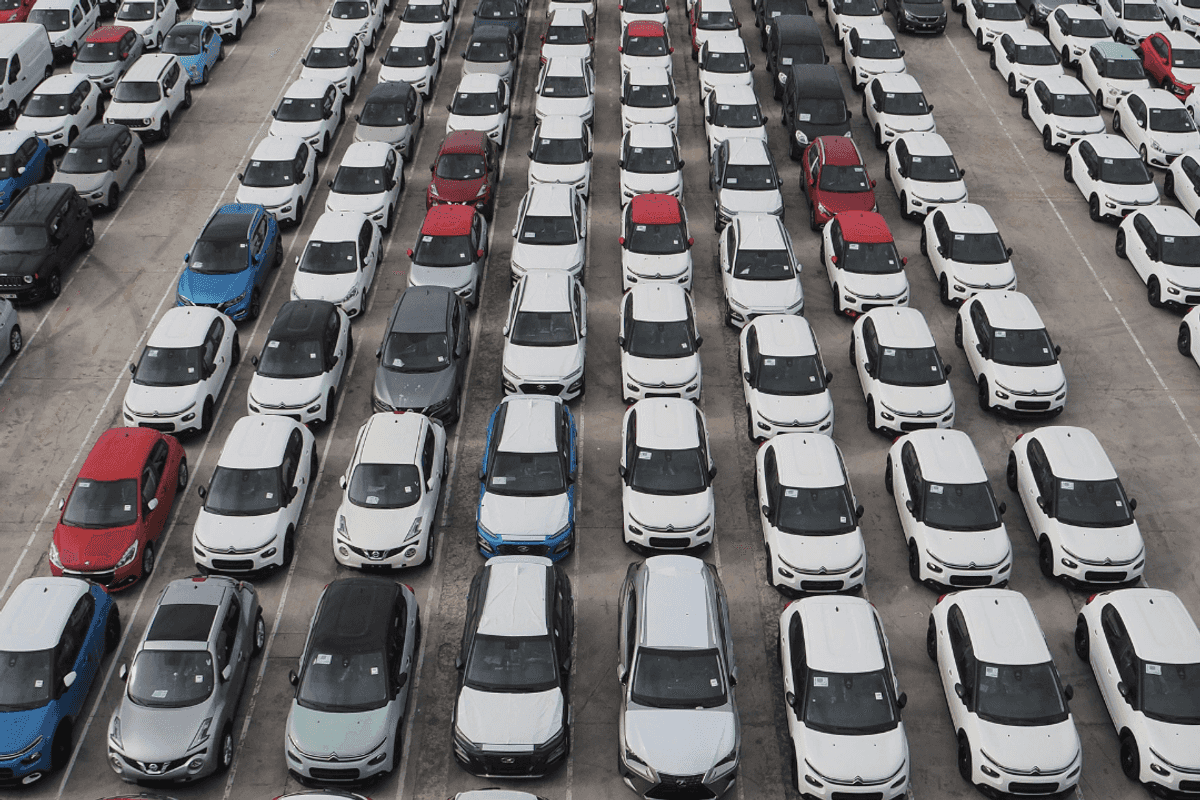In a first, Pakistan allows commercial import of used cars
Permission granted for import of cars not older than five years till June 2026
Business Desk
The Business Desk tracks economic trends, market movements, and business developments, offering analysis of both local and global financial news.

Pakistan has allowed the commercial import of used vehicles for the first time under a regulated framework, a move set to disrupt the country’s automobile industry, which is dominated by three major manufacturers.
The Economic Coordination Committee (ECC) of the federal cabinet, chaired virtually by Finance Minister Muhammad Aurangzeb from New York, approved the decision on Wednesday.
According to a statement issued by the Finance Division, the ECC approved amendments to the Import Policy Order, 2022, to permit the commercial import of used vehicles. Initially, only vehicles up to five years old will be permitted. This restriction will remain in effect until June 30, 2026, after which it will be removed.
The ECC emphasized that all imported vehicles must meet prescribed regulations.
To regulate inflows and discourage indiscriminate imports, the ECC also imposed a 40% Regulatory Duty (RD) on commercial imports of used vehicles, in addition to existing customs duties. This RD will apply until June 30, 2026, and will then be phased out gradually by 10 percentage points each year, reaching zero by fiscal year 2029-30, as recommended by the Tariff Policy Board.
According to analysts, the decision is expected to impact the local automobile market, which has long been dominated by a few manufacturers, by introducing new competition and potentially improving affordability and quality standards for consumers.
Recently, Pakistan also announced a National Tariff Policy (2025-30) aimed at tariff rationalization and trade liberalization in line with global practices. Under the new policy, tariff slabs will be reduced from five to four — 0%, 5%, 10%, and 15% — and the average tariff rate lowered from 19% to approximately 9.5% by FY2030.
As part of the policy, tariffs on imported cars will be reduced from 20% to 15% over five years, while used-vehicle tariffs will start with a 40% surcharge above new vehicle rates in FY26, decreasing annually by 10% and ending at parity by 2030.
Local automobile and spare parts manufacturers have already opposed the decision and urged the government to reconsider permission for imports.
Indus Motor, which manufactures Toyota cars in Pakistan, recently said the new tariff policy aimed at reducing duties to ease car import could disrupt the country’s auto industry and hurt local manufacturers, one of the country’s largest automobile companies has warned.
Grant for virtual assets body
In its Wednesday meeting, the ECC also approved a grant of PKR 800 million for the Pakistan Virtual Asset Regulatory Authority (PVARA), a new body tasked with overseeing the country’s digital asset and cryptocurrency landscape.
The meeting was attended by Federal Minister for Petroleum Ali Pervaiz Malik, Minister for National Food Security Rana Tanveer Hussain, Minister for Power Sardar Awais Ahmad Khan Leghari, along with senior government officials and secretaries from relevant ministries.







Comments
See what people are discussing